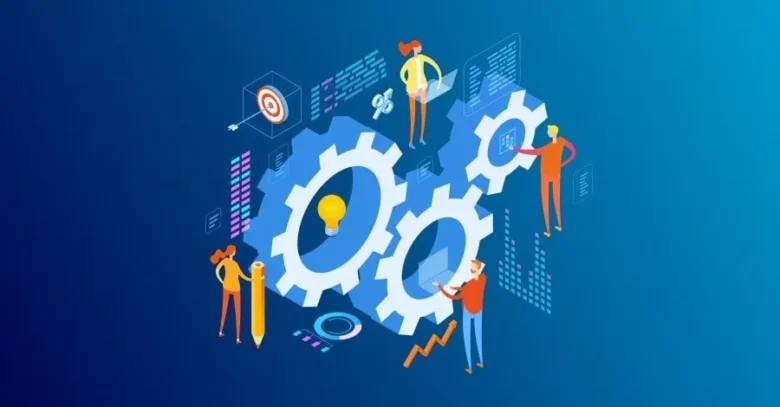Tech trends are revolutionizing small business operations. While it may be tempting to overlook them, taking advantage of innovations can give your firm a competitive advantage by streamlining operations, increasing productivity, and creating new efficiencies in everyday tasks.
Utilizing the appropriate technology ranks as one of the two major challenges to small business growth (Capterra). Staying abreast of emerging trends can make your company more agile and help scale efficiently.
1. Artificial intelligence
Artificial Intelligence (AI)–powered business technologies offer numerous advantages to organizations, such as increased productivity and efficiency, improved decision-making capabilities, and enhanced customer engagement. Chatbots and call centers equipped with AI are particularly beneficial at streamlining routine customer service requests while freeing employees to focus their energy on more complex tasks.
AI can analyze vast quantities of current and historical data for crucial business strategy insights. Furthermore, AI speeds up design-to-commercialization times providing a measurable return on investment (ROI).
Businesses employ artificial intelligence-powered technologies to reduce operational costs, grow revenues, enhance customer experiences, and boost employee productivity. But for maximum benefit, they should opt for democratized generative AI.
2. Machine learning
Machine learning is a form of AI that enables computers to use data analysis for predictive purposes without being explicitly programmed. This technology offers many advantages for both businesses and consumers.
E-commerce websites employ machine learning algorithms to personalize customer experiences by analyzing a customer’s purchase history and suggesting relevant products. Banks and financial institutions also utilize machine learning algorithms to detect potential security breaches and reduce associated risks.
Machine learning also has the added business benefit of automating repetitive tasks and streamlining workflows, like Artsyl’s intelligent document processing solutions that automatically sort documents based on content, thus eliminating manual work.
3. Embedded finance
Embedded finance enables consumers and businesses to access financial services directly within platforms they use every day, such as Klarna (which offers customers buy now/pay later options) or Lyft (which integrates payments for ridesharing). Klarna provides this type of integration while Lyft incorporates payments directly with ridesharing payments.
Streamlining workflows is just one of many advantages offered by expense platforms with integrated finance, like an expense platform that allows employees to use their virtual or plastic card without leaving the application — providing new controls over who spends what and where.
Embedded finance makes accessing working capital management easier for small businesses and allows them to reach underserved markets that would not normally have access to these financial products.
4. Blockchain
Blockchain, the decentralized digital ledger made famous by cryptocurrencies like Bitcoin, has broad-reaching business applications beyond financial services. Organizations from diverse industries use it to automate workflows, reduce transaction costs, and enhance security.
Companies looking to verify the information on job applicants’ resumes can post the data onto a blockchain so it’s readily available for review – this eliminates manual verification processes, saving hiring managers valuable time.
Other businesses are using blockchain to trace the origin of their products and services, offering transparency for customers while helping organizations such as Walmart and Maersk reduce costs.
5. Process modernization
Process modernization harnesses cutting-edge technologies like artificial intelligence (AI), machine learning, and robotic process automation (RPA) to promote operational efficiencies, agility, and innovation within business operations. Process modernization helps streamline complex processes while automating repetitive tasks for increased resource utilization – freeing up more time for more value-added tasks.
Improved data analytics. Businesses can utilize reimagined processes to collect and analyze data across end-to-end business processes, turning it into actionable insights that boost performance.
Process modernization offers businesses many benefits, including cutting costs, increasing productivity, being agile, operational excellence, and opening new revenue streams. DevOps and agile methodologies can assist businesses in reaching these objectives more quickly through faster deployment times, improved integration strategies, and flexible architecture that supports emerging technological innovations.
6. Automation
Automation allows employees to dedicate less time and attention to manual tasks, freeing them up for more strategic work and increasing both productivity and efficiency while decreasing operational costs. This results in greater productivity and efficiency while operational costs decrease significantly.
Automated systems are unaffected by human error, functioning reliably around the clock to produce accurate results without rework or delays. Their reliability goes far beyond simply eliminating typos and miscalculations to increase overall business operations integrity.
Automation also helps businesses quickly adjust to market changes and customer requirements, making businesses more agile, competitive, compliant, and compliant while remaining agile and profitable – benefits that make automation an indispensable element of the modern business landscape.
7. Big data
Companies are working harder than ever before to leverage data as an invaluable asset, driving new digital business results in multiple industries ranging from customer experience and product development, through financial services.
Data analytics can make companies more competitive, provide additional decision-making resources, and strengthen customer loyalty. Data analysis also enables organizations to optimize business processes and identify risks.
Big data helps the entertainment industry create personalized recommendations based on users’ tastes for music and movies and assists health care by recognizing patterns and providing up-to-the-minute information on infectious diseases.
8. IoT
IoT devices feature sensors, software, and network connectivity that enables them to collect and share data – from smartwatches and home automation systems to industrial machinery and transportation networks.
Businesses can utilize IoT to monitor product performance, track employee productivity, and optimize supply chain routes – helping save money while expanding competitive advantages. Furthermore, it reduces human error while streamlining business processes; providing more personalized customer service while building loyalty. However, this technology does present certain risks.
9. Cloud computing
Cloud technology has quickly become a hallmark of business technology trends, thanks to our familiar use of services like Spotify and Photobucket in our personal lives. However, its application in business applications such as real-time data access and remote resource management makes it even more relevant.
Businesses can leverage immersive technologies to craft captivating consumer experiences that promote brand loyalty and build customer relationships. From augmented and virtual reality (AR/VR), computer vision, and gaming, to computer vision — these innovations blur the line between the physical and digital worlds.
Tech innovations that enhance productivity and provide a return on investment are critical for SMBs to remain competitive and ahead of their competition. By selecting solutions with easy installation and usage processes, SMBs can get up and running more quickly.




